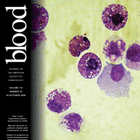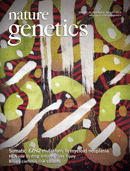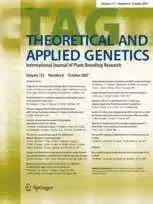Celiac.com 04/14/2009 - A team of Finnish researchers is calling for a change in the criteria for diagnosing celiac disease, based on their findings that gluten intolerant patients who do not have clinical celiac disease get similar benefits from a gluten-free diet, and respond to the diet about as well as patients who do have clinical celiac disease.
The research team recently set out to test their hypothesis that patients who showed only mild enteropathy, but positive endomysial anti-bodies, would benefit from a gluten-free diet in a manner similar to patients with more serious mucosal damage.
Celiac.com Sponsor (A12):
The research team was made up of Kalle Kurppa, Pekka Collin, Mervi Viljamaa, Katri Haimila, Päivi Saavalainen, Jukka Partanen, Kaija Laurila, Heini Huhtala, Kaija Paasikivi, Markku Mäki, and Katri Kaukinen, and they are variously associated with Finland's University of Tampere and Tampere University Hospital, the Tampere School of Public Health, the Finnish Red Cross Blood Service, and the University of Helsinki.
Among their findings are that patients with endomysial antibodies benefit from a gluten-free diet REGARDLESS of the level of intestinal tissue damage. That means that folks who have no symptoms whatsoever, but who have blood antibodies that are reacting to offending gluten proteins, should consider the benefits of a gluten-free diet. Moreover, it's likely that damage will eventually occur over time without a gluten-free diet.
The current diagnostic criteria for celiac disease require the presence of small-bowel mucosal villous atrophy with crypt hyperplasia (Marsh III). So, no damage of this specific kind, no celiac disease, no gluten-free diet, no worries. Such has been the common medical practice up to the present.
However, in many cases, damage to the intestine develops slowly over time. Also, most patients show some kind of clinical symptoms long before histologic changes show up. Endomysial antibodies happen to be strong and specific predictors of pending damage in the form of villous atrophy.
To test their hypothesis, the research team performed small-bowel endoscopies, along with clinical evaluations, on 70 adults with positive endomysial antibodies. Of these, 23 showed only mild enteropathy (Marsh I–II). Researchers assigned members of this group to either gluten-free or gluten-inclusive diets at random.
After 1 year, the team repeated all clinical, serologic, and histologic tests. A total of 47 participants showed small-bowel mucosal lesions consistent with celiac disease (Marsh III), and this group served as a control for the study.
The results for the group that continued to consume gluten showed damage to the mucosal villous architecture in all cases, along with persistent symptoms and abnormal antibody levels.
In contrast, the gluten-free group showed less damage, generally Marsh I–II, a retreat of symptoms, reduced antibody levels along with reductions in mucosal inflammation similar to controls (Marsh III).
The team concluded that a gluten-free diet provides similar benefits for gluten intolerant patients without clinical celiac disease as for those with celiac disease, that the diagnostic criteria for celiac disease warrant re-evaluation, that the presence of endomysial antibodies without mucosal damage should be included in chain of genetic gluten intolerance, and and finally that such cases merit treatment with gluten-free diet.
GASTROENTEROLOGY 2009;136:816–823








Recommended Comments